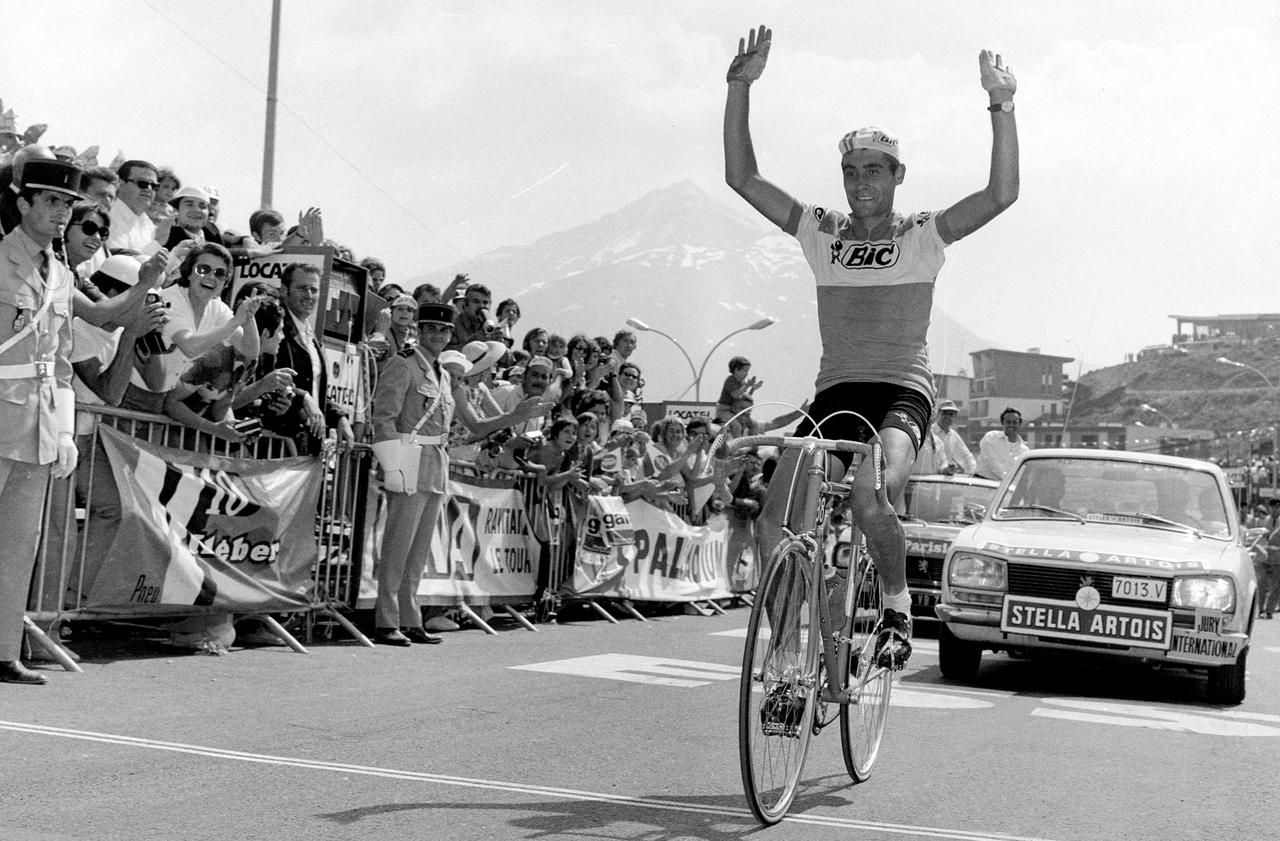Luis Ocaña's solo victory at Orcières-Merlette during the 1971 Tour de France remains one of the most astonishing displays of dominance in cycling history. It was a stage that symbolized Ocaña’s relentless ambition and talent, as well as his desire to challenge and dethrone the great Eddy Merckx.
Tour de France 1971 was expected to be another triumph for Eddy Merckx, the reigning champion and cycling’s most dominant figure. Merckx had won the previous two Tours in 1969 and 1970 with a blend of power, strategy, and tactical brilliance. Luis Ocaña, a Spanish rider with a fiery temperament and exceptional climbing ability, was seen as one of the few riders capable of challenging the "Cannibal."
Stage 11 of the Tour, on 8 July, 1971, ran from Grenoble to Orcières-Merlette, covering 134 km. It was a relatively short mountain stage, but it featured several tough climbs, culminating in the final ascent to the ski resort of Orcières-Merlette. The stage was perfectly suited for an aggressive
From the outset of the stage, Ocaña showed his intent. He launched an audacious solo attack on the Col de Manse, a climb early in the stage. The peloton, including Merckx, initially hesitated, perhaps underestimating Ocaña’s resolve or thinking the effort was premature. But Ocaña was riding with fury and precision, building a lead that quickly began to grow alarmingly. 
As Ocaña pressed on alone, the weather played a part, with heat and wind adding to the difficulty of the day. While the other riders struggled to organize a chase, Ocaña kept increasing his advantage. His descending skills and strength on the flats were just as remarkable as his climbing, allowing him to maintain a blistering pace.
Merckx, realizing the danger, tried to lead the pursuit himself, but the lack of cohesion in the group behind him meant Ocaña’s lead continued to balloon.
By the time Ocaña reached Orcières-Merlette, he was alone, having distanced everyone, including the great Merckx. He crossed the finish line with a staggering 8-minute, 42-second lead over Merckx and the rest of the chasers. It was one of the largest margins of victory in a single stage against Merckx during his career and marked Ocaña as a true rival to the Belgian champion.
The victory catapulted Ocaña into the yellow jersey and established him as the new leader of the Tour. It was a psychological blow to Merckx, who was not accustomed to being outclassed in such dramatic fashion.
Unfortunately, Ocaña’s Tour de France triumph was not to be. Just days later, during Stage 14, tragedy struck. In treacherously wet conditions on the Col de Menté, Ocaña crashed heavily, forcing him to abandon the race while still in yellow. Merckx went on to reclaim the lead and win Tour de France 1971.